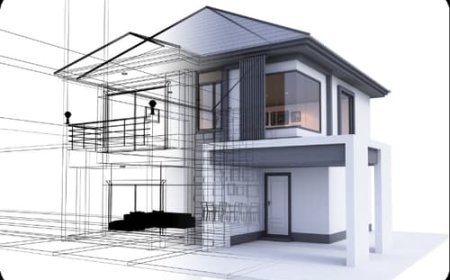BMR Calculator To Know Your Daily Calorie Needs Based On Weight, Height And Activity Level
When used in conjunction with your activity level, a BMR calculator can help you determine your total daily energy expenditure.

Understanding how your body uses energy is essential to achieving long-term health and fitness. One of the most effective tools for personalised health planning is a BMR calculator. It estimates the number of calories your body needs to function while at restalso known as your Basal Metabolic Rate (BMR).
When used in conjunction with your activity level, a BMR calculator can help you determine your total daily energy expenditure. This figure is critical whether you aim to lose weight, maintain your current physique, or build lean muscle. Alongside that, a body shape calculator can give further context to your physical composition, helping you plan more holistically.
What is BMR and why does it matter?
Basal Metabolic Rate refers to the minimum number of calories your body needs to support vital functions such as breathing, cell repair, circulation, and maintaining body temperature. These are the processes your body performs even when you are asleep or lying still.
Understanding your BMR offers several key benefits:
-
Helps you determine how many calories to consume daily
-
Forms the basis for planning weight loss or gain
-
Informs more accurate nutrition strategies
-
Contributes to better energy balance and metabolism management
BMR differs slightly from Resting Metabolic Rate (RMR), though both are often used interchangeably in fitness planning. RMR is measured under less controlled conditions and is typically slightly higher, but both give similar insights for everyday purposes.
How to calculate BMR
Your BMR is most commonly calculated using one of two scientifically validated equations. These use data such as age, weight, height, and gender to provide an estimate of your caloric baseline.
Mifflin-St Jeor equation (preferred method)
-
Men: (10 weight in kg) + (6.25 height in cm) ? (5 age) + 5
-
Women: (10 weight in kg) + (6.25 height in cm) ? (5 age) ? 161
Harris-Benedict equation (slightly less accurate)
-
Men: 88.362 + (13.397 weight in kg) + (4.799 height in cm) ? (5.677 age)
-
Women: 447.593 + (9.247 weight in kg) + (3.098 height in cm) ? (4.330 age)
Once calculated, this figure represents the energy your body burns while completely at rest. However, since most people do not spend all day resting, it is crucial to adjust your BMR according to your activity level.
Factoring in activity level: calculating TDEE
To determine how many calories you truly need each day, your BMR must be multiplied by an activity factor. This gives your Total Daily Energy Expenditure (TDEE).
-
Sedentary (little or no exercise): BMR 1.2
-
Lightly active (light exercise 13 days per week): BMR 1.375
-
Moderately active (exercise 35 days/week): BMR 1.55
-
Very active (hard exercise 67 days/week): BMR 1.725
-
Super active (physical job or intense training): BMR 1.9
The resulting figure reflects your estimated calorie needs for maintenance. To lose weight, subtract 500750 calories per day. To gain weight or muscle, add 250500 calories.
How body shape and composition play a role
While BMR and TDEE calculations provide an estimate of energy needs, your body shape can give additional clues about your fat distribution, metabolic tendencies, and health risks. A body shape calculator typically uses measurements such as waist, hips, and bust to categorise your body into common types like apple, pear, rectangle, or hourglass.
Though largely observational, understanding your body shape:
-
Helps identify areas prone to fat storage
-
Aids in tailoring specific workout routines
-
Informs targeted nutritional strategies
-
Provides a visual benchmark to track progress
Combining the functionality of a BMR calculator with insights from a body shape calculator allows for a more personalised and comprehensive fitness approach.
Real-world example
Let us consider a 35-year-old woman weighing 65 kg and standing 165 cm tall. Using the Mifflin-St Jeor formula:
-
BMR = (10 65) + (6.25 165) ? (5 35) ? 161
-
BMR = 650 + 1031.25 ? 175 ? 161 = 1345.25 kcal/day
If she is moderately active, her TDEE = 1345.25 1.55 = 2085.13 kcal/day
This means she needs approximately 2,085 calories daily to maintain her weight. For a calorie deficit of 500 kcal/day, she should aim for around 1,585 kcal/day for gradual, healthy weight loss.
How to use BMR data effectively
With your BMR and TDEE in hand, here is how you can take practical action:
-
Weight loss: Consume fewer calories than your TDEE and increase physical activity
-
Muscle gain: Consume more calories than your TDEE, focusing on protein-rich meals
-
Maintenance: Match your intake to your TDEE, adjusting for activity changes over time
Also consider using your data to guide your macronutrient balance:
-
Protein: 1.22.2g per kg of body weight depending on activity level
-
Fats: 2035% of total calories
-
Carbohydrates: 4565% of total calories
Factors that influence BMR
Your basal metabolic rate is not fixed and can be affected by:
-
Age: BMR generally declines with age due to muscle loss
-
Gender: Men often have higher BMRs due to more lean muscle mass
-
Muscle mass: More muscle = higher BMR
-
Hormonal health: Conditions like hypothyroidism can lower BMR
-
Genetics: Some individuals naturally have faster metabolisms
-
Body size: Taller and heavier individuals burn more calories at rest
Limitations of BMR calculators
While extremely useful, BMR calculators are estimations. They may not account for:
-
Body composition differences (e.g., high muscle vs. high fat)
-
Medical conditions and medications
-
Hormonal changes or temporary metabolic shifts
-
Variations in hydration, sleep, or stress
Still, they remain excellent tools for baseline assessments and ongoing monitoring.
Final thoughts
Using a BMR calculator is one of the most practical and effective steps in understanding your daily energy needs. When paired with an activity assessment and additional tools like a body shape calculator, you can develop a more tailored and sustainable plan for health improvement.
Whether your focus is weight loss, muscle gain, or energy enhancement, knowing your BMR empowers you with the data to make meaningful changes. Keep tracking your progress, stay consistent with your plan, and consult a health professional for personalised advice when necessary.


























































